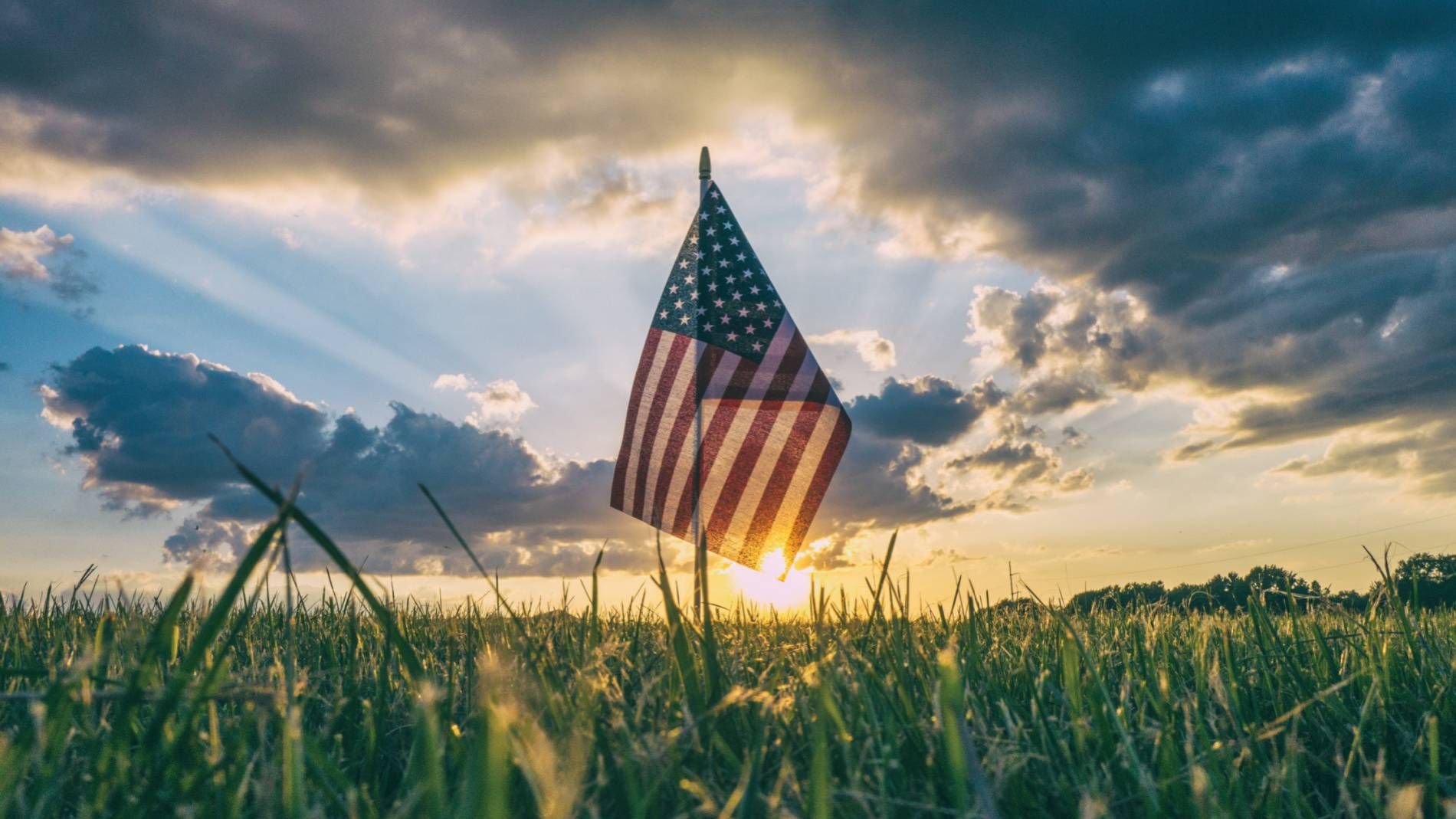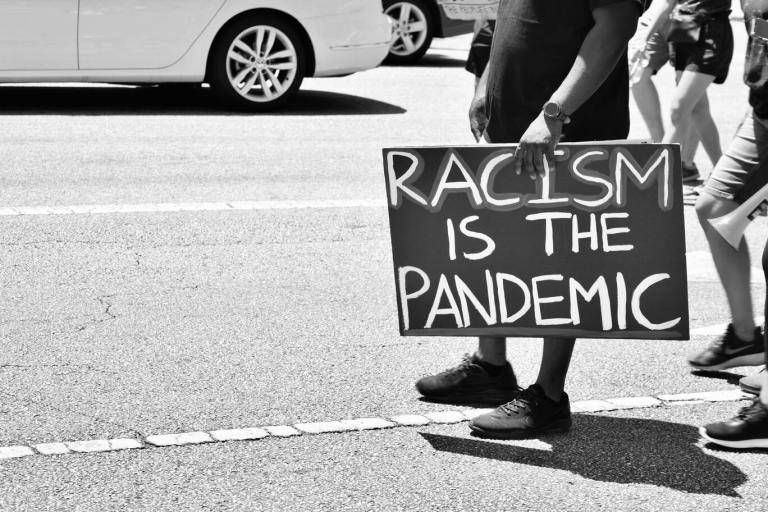A 4th of July Reflection for 2021

This reflection originally appeared in the Minnesota Spokesman-Recorder on July 7, 2021.
The Fourth of July is always a good time for Black folks to reflect on their progress or lack thereof in the effort to be treated as full, free and equal citizens in the land of their birth. Since there is no such thing as half-freedom—either one is free, or they are not—Black folks have to assess whether they are, indeed, free.
The state of Black America at the midway point of this year and almost two-and-half centuries since the declaration of the U.S. colonists that they were breaking from the British empire is somewhat dire.
While some know-it-all-folks who are supposedly more "conscious" than the rest of us berate folks for celebrating the national Independence Day, in reality, Black folks are not observing the holiday at all, but simply have historically used the occasion to take a day off to enjoy the company of family and friends and feast on favorite foods.
This year's Fourth of July was preceded by over a month of fireworks, both harmless pyrotechnics and life-threatening and sometimes fatal results of gunplay between people with the same skin tone.
No more proof is needed that Black people are still an oppressed nationality than the behavior of many Black folks toward each other than the CNN news report on Monday that told of dozens of shootings and murders occurring primarily between Black people all over the U.S. during the Fourth of July weekend.
While some misguided Black folks in Minneapolis have used this social-scientific phenomenon that accompanies colonization and oppression as an occasion to further self-flagellate the community and divide it by implying that folks fighting against systemic injustice are somehow the problem, most in the rest of the country understand that, until the boot of discrimination and white supremacy is finally lifted off our necks, we will continue to internalize our outward oppression.
Hussein A. Bulhan explained this phenomenon in "Frantz Fanon and the Psychology of Oppression" when he said, "The oppressor without becomes an oppressor within. The well-known inferiority complex of the oppressed originates in this process of internalization. Because of this internalization and its attendant but repressed rage, the oppressed may act out on each other the very violence imposed on them. They become autopressors as they engage in self-destructive behavior injurious to themselves, their loved ones, and their neighbors."
If there were a theme for the first half of this year and the nearly two-and-a-half centuries-old Declaration of Independence from Great Britain, it would be that we are not free. Frederick Douglass spoke eloquently of the brazen hypocrisy displayed by a nation that sought freedom from what they saw as tyranny while keeping hundreds and thousands of human beings in bondage and chains treated as pigs or cattle.
"What to the American slave is your 4 of July?" asked Douglass. "I answer: a day that reveals to him, more than all other days in the year, the gross injustice and cruelty to which he is the constant victim. To him, your celebration is a sham…a thin veil to cover up crimes which would disgrace a nation of savages.
"The blessings in which you, this day, rejoice, are not enjoyed in common. The rich inheritance of justice, liberty, prosperity, and independence, bequeathed by your fathers, is shared by you, not by me. The sunlight that brought life and healing to you, has brought stripes and death to me. This Fourth [of] July is yours, not mine. You may rejoice, I must mourn."
If Blacks were really to celebrate a day of independence, it would more accurately be November 7: It was that day in 1775 that the governor of Virginia, Lord Dunmore, issued an emancipation proclamation to U.S. slaves. "I do hereby further declare all indented servants, Negroes, or others free, that are able and willing to bear arms, they joining his Majesty's troops, as soon as may be."
Nearly a thousand former US slaves joined what came to be known as the Royal Ethiopian Regiment, which fought bravely on the side of the British throughout the war. And thousands of slaves took advantage of the conflict to escape slavery by taking refuge behind the British lines.
Incidentally, there was no similar offer made by the US colonists to its slaves. Though some free Blacks participated in the war and contributed to the American effort, with the exception of Crispus Attucks, their contributions are often ignored by history.

Same as it ever was
On the eve of the celebration this year, Americans have found themselves worked up over a theory about race that is not even espoused in the public school system. The debate ends all illusions about whites not being aware that the education system, like all other systems in the U.S., either consciously or unconsciously espouses white supremacy, and many liberals and conservatives, alike, want to keep it that way.
The stubborn remnants of unconscious and deeply embedded racism continue to haunt us. When Judge Peter Cahill was deciding the sentencing of former MPD officer Derek Chauvin for the murder of George Floyd, he refused to consider one of the conditions in which he could have imposed more time, and that was the fact that children had witnessed the murder.
Cahill not only refused to acknowledge that the Black girls present were girls, referring to them instead as "young women," but also denied that they were traumatized, even though they came into his courtroom displaying clear signs of trauma.
The NFL's attempt to discriminate against its Black players seeking compensation for long-term problems as a result of head injuries suffered during their playing careers because they supposedly started with less brain capacity than their white teammates revealed that the vestiges of eugenics are still very much a part of the primarily white-run medical system in this country.
We are nearing the end of a pandemic that disproportionately took the lives of Black folks. The pandemic exposed the fact that Black and brown folks still overwhelmingly worked some of the worst jobs and made up a sizable amount of the so-called essential workers, making many of them susceptible to the disease because of their constant proximity to the public.
A report was released last week that [stated] patients who sought care in hospitals in predominantly Black areas got significantly less care than patients who were cared for in predominantly white neighborhoods.
Black folks at this juncture continue to languish at the bottom of the misery index in every category.
And police violence and its constant presence—as American as violence itself—has become a part of the American landscape. The fact that it continues unabated speaks for itself. Despite grand proclamations by elected officials from the local mayor's office to the statehouse to the U.S. Congress and the White House, nothing concrete has been enacted to hold police accountable. In fact, during and after the nationwide protests to get justice for George Floyd, police acting as an independent, right-wing gang stepped up their brutality, even targeting the press.
While liberal pundits continue to praise the country for progress no one can touch, see or feel, the police continue to operate with impunity. The open and blatant apparent murder of Winston Boogie Smith, along with the police killing of Dolal Idd, are further proof that the police are not only not being reigned in, but it appears that, with the Smith killing, they are sending a message to the community: "We will do exactly what we want when we want, and if you challenge us, even on social media, we will kill you."
If that all sounds like so much hyperbole, then how else can one explain the latest killing and police intransigence?
When Black farmers sought to be compensated for nearly a century of discrimination and denial of loans that were accessible to white farmers, a group of white farmers opposed the remedy which would have awarded the aggrieved farmers compensation for monies and opportunities lost, and incredibly, they filed suit, blocking the attempt at reparation.
And while the talk of reparations is encouraging the authorities which never, ever do anything without it benefiting the system in the long run is likely supporting these efforts because, at the end of the day, they encourage more capitalist buy-in.
Nearly two centuries after Douglass' chastisement of the American experiment, the promise of liberty, full citizenship and equal rights has still not been delivered to citizens of African descent. However, the 13 colonies penned these words: "We hold these truths to be self-evident, that all men are created equal, that they are endowed by their Creator with certain unalienable rights, that among these are life, liberty and the pursuit of happiness."
And yet this creed has not been evident to those in charge of the U.S. as racism is still a central characteristic of U.S. society and the number-one killer of Black people, either directly or indirectly. It remains to be seen whether Black folks will continue to flounder or finally be incorporated into the American experiment as full citizens.
One thing is clear: Nothing stays the same; conditions either get better or worse. Either Black folks will be brought in as full partners in this republic, or, at some point, they will ultimately be scapegoated and faced with a kind of final solution.
More about the Minnesota Spokesman-Recorder (MSR): Each week, the newspaper's diverse staff creates original content for its print publication, along with daily content for its website that speak to stories of human interest from a Black perspective.
The MSR's mission is to provide timely news and information focused on community empowerment and education while championing underrepresented voices. More than just a newspaper, this includes creating content that not just informs, but also inspires, educates and encourages conversations that go beyond today's news headlines.
